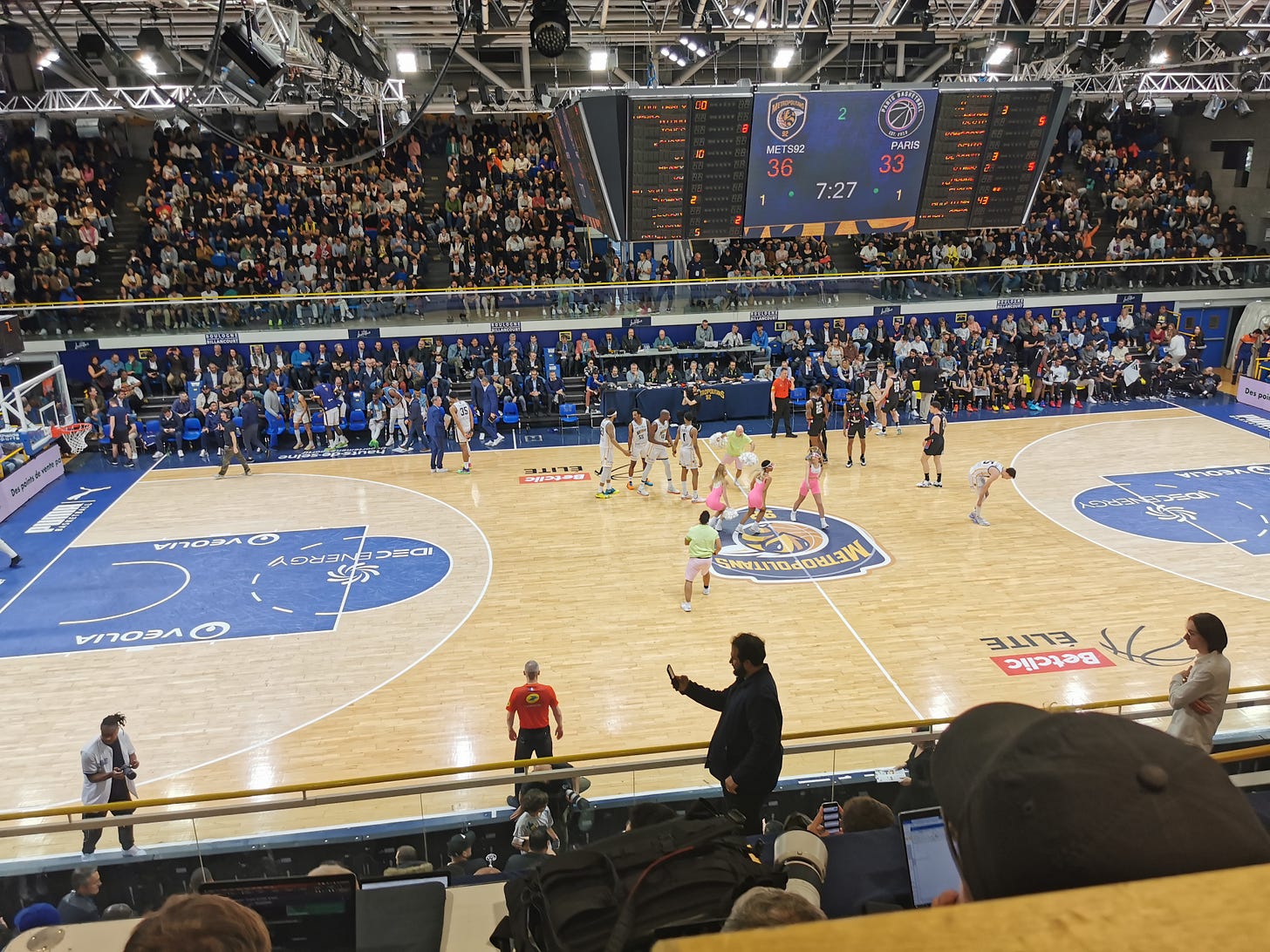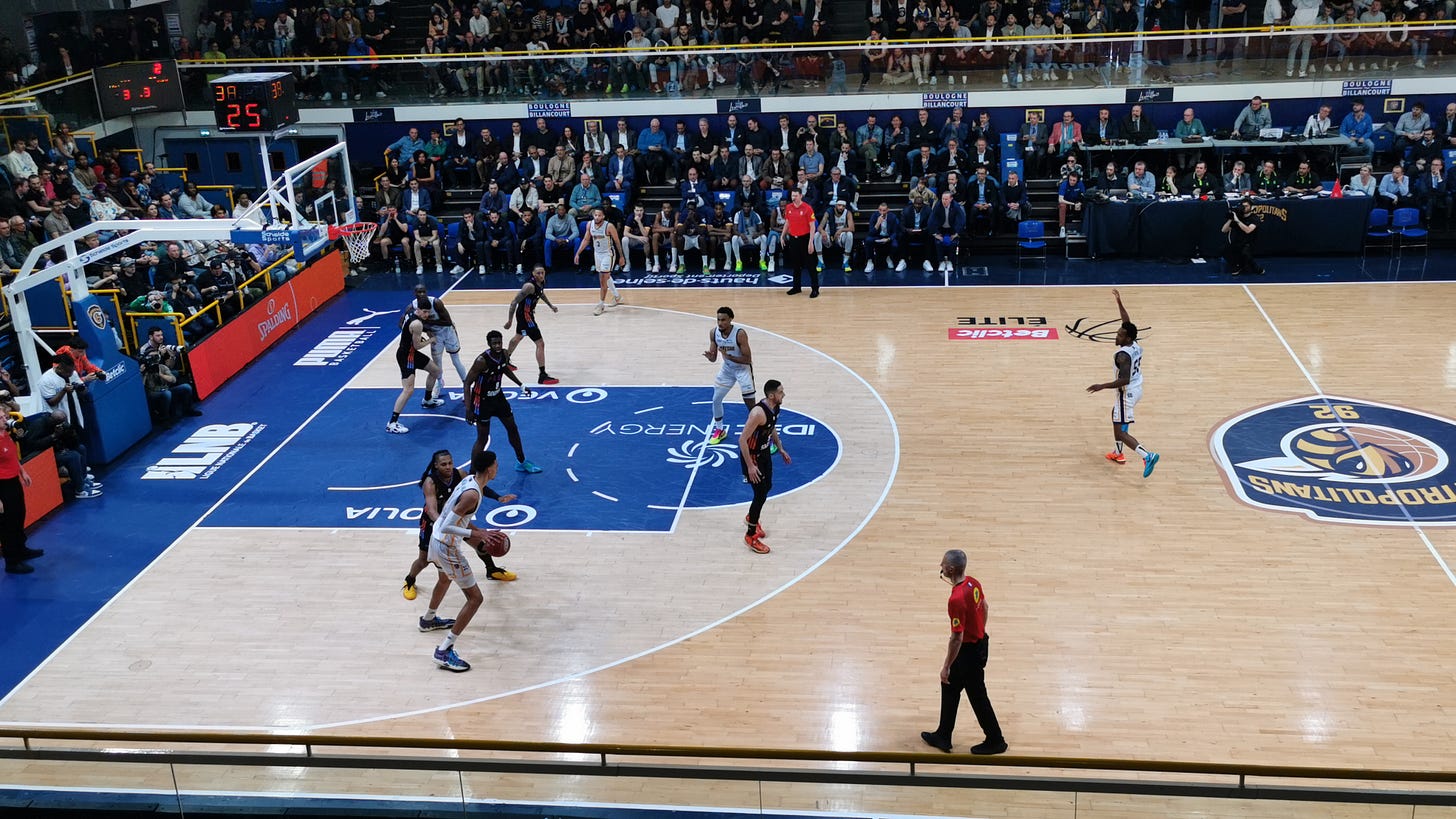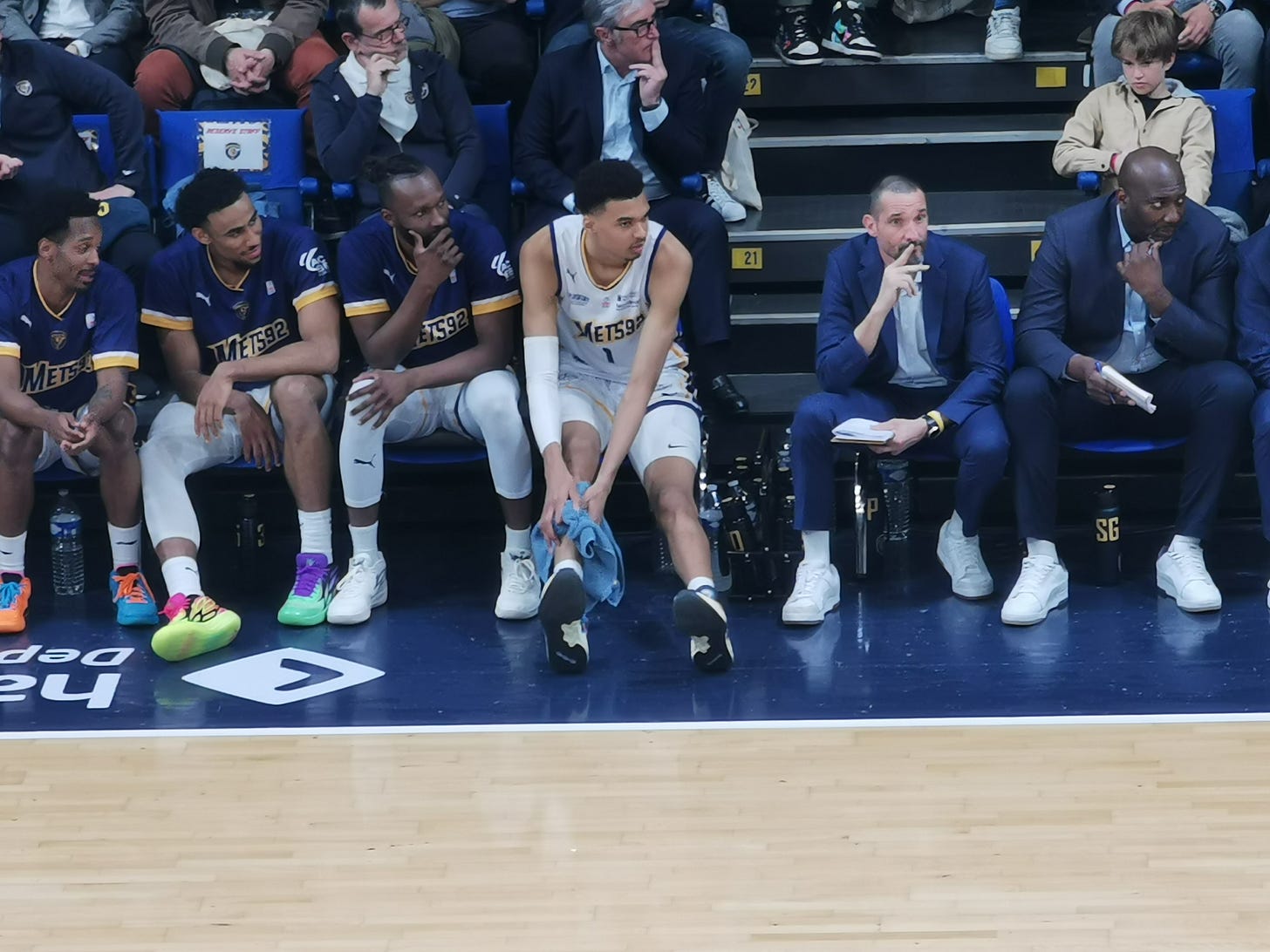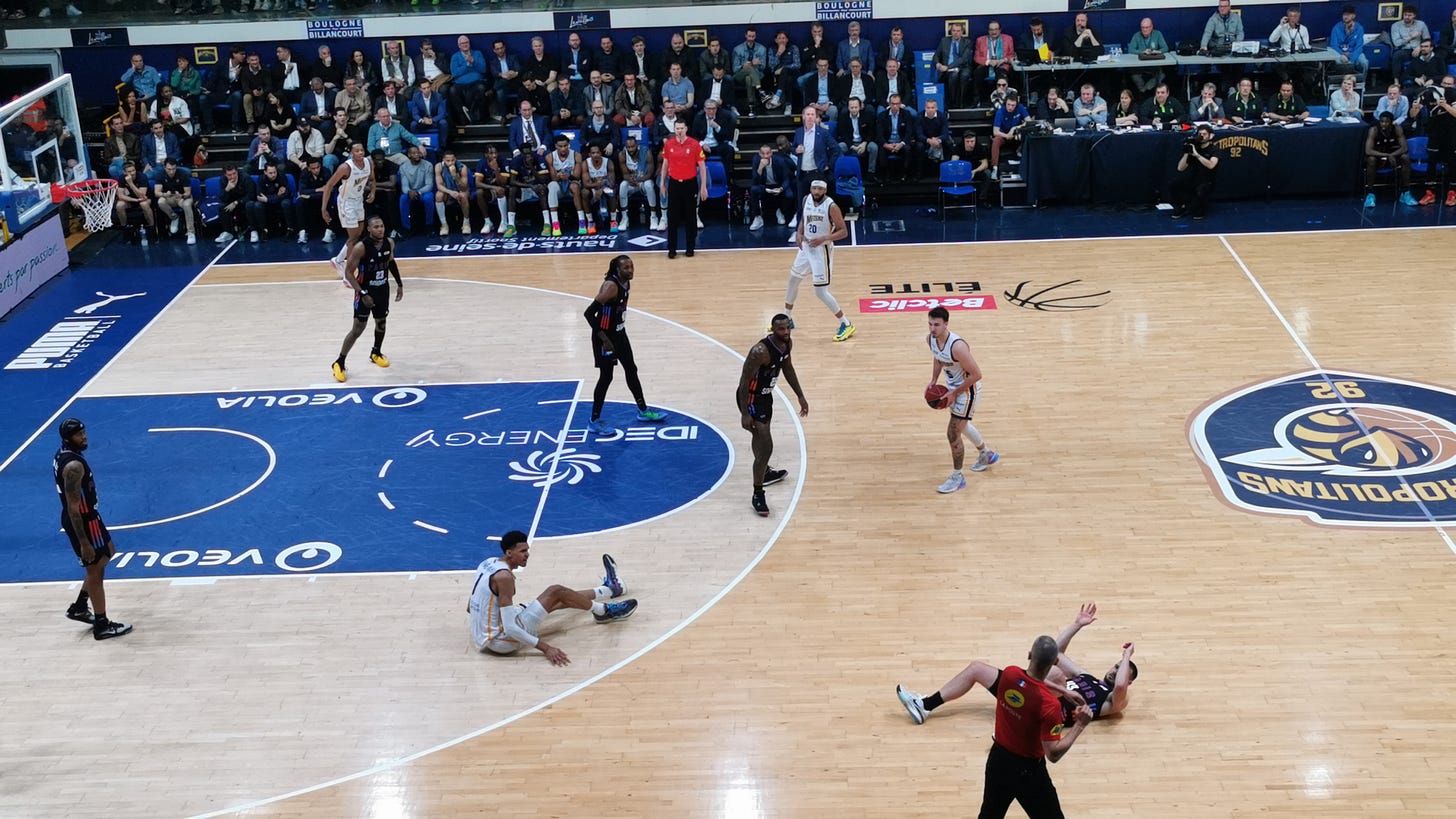Experiencing The Victor Wembanyama Hype
The 19-year-old French basketball player is widely expected to be the first player chosen in the NBA Draft this summer. In his final regular season game, the 7'5" center both disappointed and dazzled.
The Palais des sports Marcel-Cerdan in a western suburb of Paris is an almost comically small and humble setting for Victor Wembanyama, the teenage player who may potentially change the game of professional basketball.
The arena only seats 4,000, which means that every seat is a great seat from which to view the action. In terms of overall dimensions, it felt roughly the size of the gym at the high school I attended in Kansas. In terms of spectators, it has room for about half the bodies as Cameron Indoor Stadium at Duke University, where I spent 4 years becoming a basketball obsessive.
On Tuesday night, I entered the arena and made my way to the press table at center court to watch the game which had just tipped off. I had never covered sports as a reporter. On the other hand, anyone who attended Duke will tell you that having attended Duke automatically makes you an armchair expert on all things related to basketball.
Unfortunately, that knowledge doesn’t really extend to understanding French professional sports and how they are organized. The concept of college athletics is completely baffling to the French. The fact that places of higher education in the U.S. maintain the charade of “player-athletes” to buttress a system that funnels ludicrous sums of money to universities is simply a product of American nonsense.
The French have dispensed with all such phoniness and created a byzantine assortment of professional leagues that look a bit more like the Minor League system used by Major League Baseball, except lower-level clubs are not owned by the top-tier clubs.
In this system, Wemby, as he is called by fans, plays for the Boulogne-Levallois Metropolitans 92, which is a team in the LNB Pro A league, the highest level in French basketball. This is his first year with the Metros, but it is his third as a professional basketball player. He made his professional debut at the age of 15 in an under-21 league for another club, while continuing to attend high school under a special agreement.
On this night, Wemby’s team was playing crosstown rivals Paris Basketball, who had been so bad they had almost been demoted to a lower league after the previous season (or relegated, for you Ted Lasso fans). Paris had hired American coach Will Weaver, who had bounced around various assistant coaching jobs at the NCAA and NBA levels, and he had turned the team around, though they would just miss the playoffs.
The Metros had secured the second seed, behind Monaco, so there wasn’t much at stake but pride. But the atmosphere was still charged, thanks to a full house, a gaggle of international press, and the presence of French celebrities such as Omar Sy (Netflix’s Lupin) and Soccer god Kylian Mbappé. Adding an element of drama, a few hours after the game, the NBA would hold its lottery to determine which team would get to select first, a choice that everyone expects to be Wemby.
Attending a basketball game in France is a chance to see how American culture is filtered through a French lens. Thus, there was a 5-person cheerleading-dance squad entertaining the crowd during breaks. Fans had learned to chant Defense! Defense! (pronounced day-fonce, day-fonce). There was the correct use of such ritual sports classics as Eye Of The Tiger, We Will Rock You, and the opening symphonic synthesizer trumpets of Europe’s Final Countdown.
If I were offering notes, I would nitpick that the organ-fueled Charge! and its longer-form cousin Speed Up! are really more of a baseball thing. Perhaps next time I go to a game, I’ll attempt to teach them Na Na Hey Hey.
Of course, the game itself and the surrounding theatrics were really just a distraction from the real reason most of us were there, which was Wemby. For all the talk of the ability to dominate on the court, it is impossible to ignore the fragility of his physical appearance once he stepped on the court.
Choose your synonym: lanky, rangy, wiry, gangly. His explosive growth has created a towering specimen of tendons and joints waiting to be reinforced by muscle. While he is working with a nutritionist and trainer to gain muscle mass, at the moment he looks extremely vulnerable. It’s hard not to worry about how he will endure the physical punishment of an NBA season.
And sure enough, somewhere late in the first quarter of the game, he suffered some undisclosed injury that led the coach to bench him for most of the 2nd and 3rd periods. He would periodically massage his legs while sitting on the bench, or retreat to a corner with a trainer where he was hopping and clearly trying to work out some physical issue.
But even before the injury, Wemby wasn’t very good. Aside from one dazzling layup, he was missing shots, not making much of a defensive impact, and generally seemed off. Every time he got knocked down, I thought, “There go his knees.” At one point, a player about half his size dunked over him. He had 3 fouls in the first half.
The talent level on the court was roughly equivalent to a decent NCAA Division I team. Given his size and reputed skillset, it seemed he should have been effortlessly stomping all over these lesser beings. Instead, his presence on the court seemed marginal.
Where was this future legend everyone had been so hyped about?
Origin Story
Wembanyama was born in Le Chesnay, a village just east of Versailles. His last name comes from his father’s Congolese heritage. His sporting ability seems to come from his father (a former long jumper) and his mother, a former basketball player and coach. Both of her parents also played basketball.







